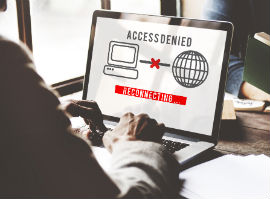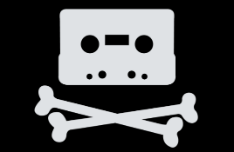[Most Recent Entries] [Calendar View]
Tuesday, February 19th, 2019
- Fantastic Beasts and Where to Find Them (6)
- Rick and Morty (5)
- Ghost in the Shell (4)
- IT (4)
- South Park (4)
- The Accountant (3)
| Time | Event |
| 10:12a | 93 Students At One University Suspended From Web for Pirate Downloads  Downloading and sharing copyrighted content without permission is illegal everywhere in the EU. It doesn’t matter whether users obtain infringing content via BitTorrent sites, web streaming services, or their favorite Kodi addon, doing so is potentially actionable under existing law. A minority of users discover this the hard way (particularly in countries like Germany and Sweden) when they receive a demand for cash from copyright trolls who track their activities when using BitTorrent. In reality, however, most small-time pirates are able to carry on with their activities relatively unhindered, since the mainstream movie and music companies rarely chase down individuals for settlement or prosecution. But that doesn’t mean they’re not watching and that some people can suffer serious consequences. Back in 2017, a UK student made international headlines after she downloaded and shared the movie Chicken Run using BitTorrent. What was unusual about this case is that she did so What followed was a 20-day ban from Eduroam (education roaming), a worldwide roaming access service developed for the international research and education community Eduroam allows students and staff to access the Internet across campus and other participating sites, unless they’re currently under a suspension for piracy, of course. And, it transpires, that is more common than one might think. According to The Tab Network, which describes itself as a “guerilla army of bold and subversive student reporters across the country”, a staggering 93 students at the University of Sheffield in the UK were banned from the Eduraom network between 2017 and 2018 following copyright complaints. The surprising statistic was obtained following a Freedom of Information request. The details suggest that those downloading movies and TV shows are most at risk of being tracked by anti-piracy companies. While dozens of titles are listed, the most complained about content is listed as follows: While most of the titles in the full list appear new or relatively so, it’s clear that entertainment industry groups are monitoring films from decades ago. The Naked Gun 2 (1991) is one such example but complaints were also received for The Godfather (1972) and The Godfather Part II (1974), despite both movies moving dangerously close to half a century old. As the full list indicates, TV shows were also complained about regularly, with Rick and Morty and South Park unsurprisingly proving popular with students. Various episodes of MTV’s reality show Geordie Shore featured in a number of complaints too, as did Impractical Jokers. That downloading and sharing highbrow material such as Geordie Shaw has resulted in an Internet ban for many Sheffield University students must come as a disappointment to those involved, but they can’t claim they weren’t warned. While the University does allow the use of peer-to-peer software such as BitTorrent, it does not permit the sharing of copyrighted content and appears to have a robust process in place to deal with allegations. “University computing facilities (including any University provided connection to the Internet) must not be used to copy or distribute copyright material without authorization of the copyright owner. This includes movies, music, software and electronic books,” the facility’s copyright policy states. “The use of University facilities in breach of copyright law is a serious matter, which can damage the good name of the University and is against University Regulations and English Law. “Material that is proven to infringe the law or is in breach of University policy will be removed. Users found to be in breach of this policy may have their accounts temporarily or permanently suspended and/or face disciplinary action,” it adds. While the anti-piracy companies monitoring these movies and TV shows are happy to catch any infringer in their dragnets, there can be little doubt that they absolutely know that in these cases they are targeting students. It’s up for debate whether having an education disrupted is an appropriate and proportionate response to small-time infringements but given that this type of peer-to-peer piracy has been chased down for almost two decades, students really can’t complain that they don’t know the risks.
Source: TF, for the latest info on copyright, file-sharing, torrent sites and more. We also have VPN reviews, discounts, offers and coupons. |
| 8:30p | Hollywood Uses ‘False Whois’ Domain Suspensions as Anti-Piracy Tool
For years, copyright holders and local enforcement authorities have reached out to domain registries and registrars, asking these companies to terminate sites for alleged copyright infringements. In addition, Hollywood’s MPAA also struck voluntary deals with companies in the domain name industry, to suspend the domain names of infringing sites. While these agreements are criticized by some outsiders, the participating parties appear to be happy with it. Recently we learned of a relatively new voluntary agreement that also targets pirate domains, but not for copyright infringement. The International Intellectual Property Alliance’s (IIPA) latest submission to the US Government explains that Hollywood’s MPA has a voluntary agreement with the National Internet Exchange of India (NIXI) and India’s Department of Industrial Policy & Promotion (DIPP). Under this agreement, which has been in place for a while, copyright holders can report “pirate” sites with an .IN domain. Not for copyright infringement, but because they used false Whois data to register the domain in question. “In 2017, the Motion Picture Association (MPA) agreed to a voluntary arrangement with DIPP and NIXI to suspend infringing websites based on false whois information; it focused on domains in breach of statutory and contractual obligations to maintain accurate and complete whois information,” IIPA writes. As far as we know this deal hasn’t been made public until now. However, it is seen by copyright holders as an effective anti-piracy tool in addition to site blocking. “This [agreement] has led to disruption of dozens of websites in India and should be considered an additional enforcement tool to traditional enforcement or site blocking,” IIPA notes. The ‘false Whois’ suspensions are not the only domain name actions taken in India. The relatively new Maharashtra Cyber Digital Crime Unit (MCDCU) is also taking action against pirate sites, which resulted in suspensions of more than 200 domains. The Digital Crime Unit has taken a page from the City of London Police, reporting sites that are suspected of crimes to various domain registrars. “In addition, since 2017, the MCDCU has suspended 203 domains impacting approximately 160 million users accessing these sites per month. In conjunction with fighting to suspend these domains, convicting those involved in content theft is also under the MCDCU’s jurisdiction.” It’s unclear how many domain registrars rejected the suspension requests from the Digital Crime Unit. A few years ago we revealed that most domain name registrars refused to suspend domains based on a mere accusation from the City of London Police. In addition to domain suspension, the Indian unit was also involved in other enforcement actions. This includes including the arrests of four people in connection to a leaked episode of Game of Thrones last year, which was covered by news media all around the world. IIPA notes that there is still plenty of improvement possible when it comes to copyright enforcement and anti-piracy actions in India. It is happy with the help from MCDCU and NIXI though and encourages these outfits to continue their “excellent work” suspending domain names. Source: TF, for the latest info on copyright, file-sharing, torrent sites and more. We also have VPN reviews, discounts, offers and coupons. |
| << Previous Day |
2019/02/19 [Calendar] |
Next Day >> |
 Besides website blocking, which is gradually
Besides website blocking, which is gradually